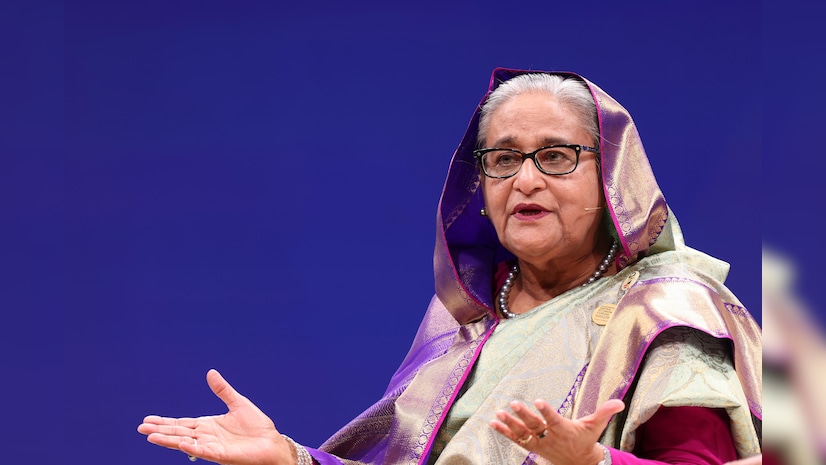Nearly a year after mass student-led protests rocked Bangladesh, the country’s political landscape has undergone a dramatic transformation. Former Prime Minister Sheikh Hasina, who fled the country in August 2024, has now been formally charged with crimes against humanity by Bangladesh’s International Crimes Tribunal.
The charges, announced on June 1, 2025, stem from her government’s violent suppression of the July 2024 protests, during which security forces used live ammunition against demonstrators demanding merit-based recruitment and democratic reforms.
Brutal Crackdown Leaves Over 1,400 Dead, Thousands Detained
Human rights organizations estimate that more than 1,400 people were killed, including women and children, and over 22,000 were injured or detained.
Prosecutors allege that Hasina personally authorized the crackdowns. Evidence reportedly includes encrypted communications and video footage directly linking her to the operation. Her trial is scheduled to begin on June 16, although she remains in exile in India.
The July Revolution: A Movement That Changed a Nation
The unrest was triggered in June 2024 when the Supreme Court reinstated a controversial quota system, reserving 30% of public sector jobs for descendants of 1971 Liberation War veterans. What began as student protests quickly evolved into a nationwide movement dubbed the “July Revolution” reflecting broader frustrations with corruption, economic inequality, and perceived authoritarianism under Hasina’s rule.
Hasina’s Resignation Triggers Power Shift
Facing increasing dissent and pressure from the military, Hasina resigned on August 5 and fled to India. Her departure plunged Bangladesh into a constitutional crisis, prompting the establishment of an interim government led by Nobel Peace Prize laureate Muhammad Yunus.
Operation Devil Hunt: Purging the Old Regime
The Yunus-led government swiftly moved to dismantle the remnants of Hasina’s regime. Her party, the Awami League, was banned, and a nationwide crackdown codenamed “Operation Devil Hunt” was launched against her allies. As of February 2025, over 11,000 people have been arrested under the operation.
Widening Scandal: $5 Billion Corruption Probe
In parallel, Hasina and her family face corruption investigations over alleged embezzlement of approximately $5 billion from the Rooppur Nuclear Power Plant project. Bangladeshi authorities have frozen numerous accounts and seized assets tied to her family. A formal extradition request was sent to India in December 2024, but New Delhi has yet to act on it.
Symbolic and Cultural Shifts
In a striking move signaling the new administration’s desire to break with the past, Bangladesh has redesigned its currency to remove the image of Sheikh Mujibur Rahman the country’s founding father and Hasina’s father. The change marks a significant shift in national symbolism and historical narrative.
International Reaction: Cautious Support and Concern
The global response to Hasina’s indictment has been mixed, balancing support for justice with concerns over due process and political retribution.
A United Nations report released in February 2025 described the 2024 crackdown as a “coordinated and systematic campaign” by Hasina’s government to cling to power. The report documented widespread human rights abuses, including extrajudicial killings, arbitrary arrests, and torture.
Human Rights Watch endorsed the UN’s findings and called for judicial reforms to ensure fair trials. Amnesty International condemned the crackdown as “excessive and brutal,” urging independent investigations and reparations for victims.
India’s Delicate Balancing Act
India, where Hasina currently resides, has yet to honor Bangladesh’s extradition request. In a diplomatic meeting in April 2025, Indian Prime Minister Narendra Modi urged interim leader Yunus to avoid divisive rhetoric, emphasizing the importance of regional stability and democratic transition. However, India’s reluctance to extradite Hasina has fueled growing anti-India sentiment within Bangladesh.
Bangladesh’s Fragile Transition: Reform or Retribution?
Bangladesh now stands at a pivotal crossroads. While many hail the interim government's push for accountability and reform, others worry that justice is being weaponized for political purposes. The upcoming trial of Sheikh Hasina is expected to further polarize public opinion and test the credibility of the nation’s judicial system.
As the country prepares for future elections, the international community continues to watch closely _ urging restraint, transparency, and a peaceful return to democratic rule.
Key Takeaway
Nearly a year after mass student-led protests rocked Bangladesh, the country’s political landscape has undergone a dramatic transformation. /*Former Prime Minister Sheikh Hasina*/, who /*fled */the co
